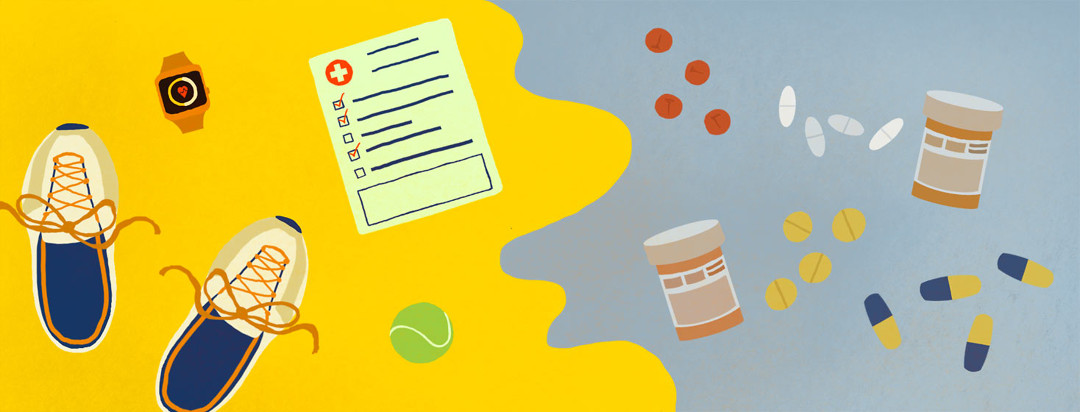When Centralized Pain Is the Wrong Diagnosis
I almost fell getting out of bed earlier this summer. Pain shot up my entire right leg, from foot to hip, when I tried to support my 100-pound frame. I'm no stranger to morning aches; I have endometriosis and I'm almost 40. But pain on the top of my foot? That was new.
I'm pretty active and I'd just spent a month hiking in Colorado, so I figured I'd injured it. But I'd also started pelvic floor therapy a few months earlier. I wondered if my stretches were making things worse.
After I commiserated with my 78-year-old stepfather, I realized my symptoms sounded a lot like his sciatica: the sciatic nerve is a big vein that runs from your lower spine, through your hip, down your leg and into your foot. It causes numbness or pain if it gets pressed.
But I didn't know what was going on. So, I made an appointment with my primary care doctor to find out.
When endometriosis colors the diagnosis
I specifically came to the doctor for my leg pain. But she focused a lot on my endo and my history with depression and anxiety. While I think it's important to give doctors a full picture of my health — intermittent joint pain, gas and bloating when I eat, pelvic pain from endometriosis and muscle tension — I think my candor clouded the diagnosis this time.
She told me that people who have irritable bowel syndrome (IBS), endometriosis or mood disorders sometimes feel pain too much. This is called centralized pain, she said. (I already knew that, but I let her keep going.) She said it would be "reasonable" to test me for autoimmune conditions like rheumatoid arthritis and lupus. But she suggested I think about taking an antidepressant to help with chronic pain.
Why second opinions are important
A day later, my blood tests showed I did not have RA, lupus or high levels of inflammation. The nurse practitioner, again, suggested I start on the antidepressant. Instead, I called my pelvic floor therapist. I told her it really felt like I had a nerve problem. I added that the more my hip loosened up from pelvic floor exercises — which did help with pelvic pain — the worse my leg felt. She told me to book an appointment with a physical therapist in her office (sciatic pain is not her speciality, she said).
My new physical therapist said my symptoms were common in people who have a bulging disc on their sciatic nerve. It can happen with overuse (typical in an aging athletic type), scar tissue or from an injury. She asked how long I'd had pain: 25 years, I joked. But I clarified that the foot pain started a couple of months before.
However, I pointed out my upper side and hip pain worsened a couple of years ago. What happened 2 years ago, she asked? I thought back and remembered I'd taken a really bad fall directly on my spine. It was so swollen that I had to get X-rays to make sure I didn't break anything. She pressed around on my lower spine, an action that made me nauseated, I told her. That could be a disc problem, she said.
Listen to your gut
To make a long story short, the physical therapist told me my problems were typical sciatic nerve pain. She was glad I wanted to try physical therapy before an antidepressant. She said there could be a several treatable things at play.
Whether or not I have centralized pain, she said sees people with my symptoms all the time. And most importantly, she's helped them get better with exercises. It's quite possible I have endo on my nerves. But it doesn't help that I have poor posture, a history of exercising a lot, muscle tension and an asymmetrical pelvis. (The latter is probably why I've had back pain for so long.)
Exercises, not medication, helped
My therapist tweaked my pelvic floor exercises — no more excessive bending forward — and added in some stretches to relieve nerve compression. Within a couple of weeks, I stopped getting the tingling sensation in my leg. And after I ordered something called a Tush Cush to help my sitting posture, my hips started feeling better.
And my foot pain is gone. No medication required.

Join the conversation